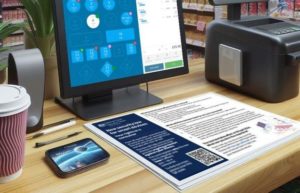Daily Vulnerability Trends: Sun Jan 01 2023

| CVE NAME | CVE Description |
| CVE-2022-48196 | Certain NETGEAR devices are affected by a buffer overflow by an unauthenticated attacker. This affects RAX40 before 1.0.2.60, RAX35 before 1.0.2.60, R6400v2 before 1.0.4.122, R6700v3 before 1.0.4.122, R6900P before 1.3.3.152, R7000P before 1.3.3.152, R7000 before 1.0.11.136, R7960P before 1.4.4.94, and R8000P before 1.4.4.94. |
| CVE-2022-47949 | The Nintendo NetworkBuffer class, as used in Animal Crossing: New Horizons before 2.0.6 and other products, allows remote attackers to execute arbitrary code via a large UDP packet that causes a buffer overflow, aka ENLBufferPwn. The victim must join a game session with the attacker. Other affected products include Mario Kart 7 before 1.2, Mario Kart 8, Mario Kart 8 Deluxe before 2.1.0, ARMS before 5.4.1, Splatoon, Splatoon 2 before 5.5.1, Splatoon 3 before late 2022, Super Mario Maker 2 before 3.0.2, and Nintendo Switch Sports before late 2022. |
| CVE-2022-27510 | Unauthorized access to Gateway user capabilities |
| CVE-2018-5430 | The Spring web flows of TIBCO Software Inc.’s TIBCO JasperReports Server, TIBCO JasperReports Server Community Edition, TIBCO JasperReports Server for ActiveMatrix BPM, TIBCO Jaspersoft for AWS with Multi-Tenancy, and TIBCO Jaspersoft Reporting and Analytics for AWS contain a vulnerability which may allow any authenticated user read-only access to the contents of the web application, including key configuration files. Affected releases include TIBCO Software Inc.’s TIBCO JasperReports Server: versions up to and including 6.2.4; 6.3.0; 6.3.2; 6.3.3;6.4.0; 6.4.2, TIBCO JasperReports Server Community Edition: versions up to and including 6.4.2, TIBCO JasperReports Server for ActiveMatrix BPM: versions up to and including 6.4.2, TIBCO Jaspersoft for AWS with Multi-Tenancy: versions up to and including 6.4.2, TIBCO Jaspersoft Reporting and Analytics for AWS: versions up to and including 6.4.2. |
| CVE-2022-41082 | Microsoft Exchange Server Remote Code Execution Vulnerability. |
| CVE-2019-2215 | A use-after-free in binder.c allows an elevation of privilege from an application to the Linux Kernel. No user interaction is required to exploit this vulnerability, however exploitation does require either the installation of a malicious local application or a separate vulnerability in a network facing application.Product: AndroidAndroid ID: A-141720095 |
| CVE-2018-18809 | The default server implementation of TIBCO Software Inc.’s TIBCO JasperReports Library, TIBCO JasperReports Library Community Edition, TIBCO JasperReports Library for ActiveMatrix BPM, TIBCO JasperReports Server, TIBCO JasperReports Server Community Edition, TIBCO JasperReports Server for ActiveMatrix BPM, TIBCO Jaspersoft for AWS with Multi-Tenancy, and TIBCO Jaspersoft Reporting and Analytics for AWS contains a directory-traversal vulnerability that may theoretically allow web server users to access contents of the host system. Affected releases are TIBCO Software Inc.’s TIBCO JasperReports Library: versions up to and including 6.3.4; 6.4.1; 6.4.2; 6.4.21; 7.1.0; 7.2.0, TIBCO JasperReports Library Community Edition: versions up to and including 6.7.0, TIBCO JasperReports Library for ActiveMatrix BPM: versions up to and including 6.4.21, TIBCO JasperReports Server: versions up to and including 6.3.4; 6.4.0; 6.4.1; 6.4.2; 6.4.3; 7.1.0, TIBCO JasperReports Server Community Edition: versions up to and including 6.4.3; 7.1.0, TIBCO JasperReports Server for ActiveMatrix BPM: versions up to and including 6.4.3, TIBCO Jaspersoft for AWS with Multi-Tenancy: versions up to and including 7.1.0, TIBCO Jaspersoft Reporting and Analytics for AWS: versions up to and including 7.1.0. |
| CVE-2022-42710 | No description provided |
| CVE-2022-47939 | An issue was discovered in ksmbd in the Linux kernel 5.15 through 5.19 before 5.19.2. fs/ksmbd/smb2pdu.c has a use-after-free and OOPS for SMB2_TREE_DISCONNECT. |
| CVE-2021-34979 | This vulnerability allows network-adjacent attackers to execute arbitrary code on affected installations of NETGEAR R6260 1.1.0.78_1.0.1 routers. Authentication is not required to exploit this vulnerability. The specific flaw exists within the handling of SOAP requests. When parsing the SOAPAction header, the process does not properly validate the length of user-supplied data prior to copying it to a fixed-length buffer. An attacker can leverage this vulnerability to execute code in the context of root. Was ZDI-CAN-13512. |
| CVE-2022-41040 | Microsoft Exchange Server Elevation of Privilege Vulnerability. |
| CVE-2022-29455 | DOM-based Reflected Cross-Site Scripting (XSS) vulnerability in Elementor’s Elementor Website Builder plugin <= 3.5.5 versions. |
| CVE-2021-44228 | Apache Log4j2 2.0-beta9 through 2.15.0 (excluding security releases 2.12.2, 2.12.3, and 2.3.1) JNDI features used in configuration, log messages, and parameters do not protect against attacker controlled LDAP and other JNDI related endpoints. An attacker who can control log messages or log message parameters can execute arbitrary code loaded from LDAP servers when message lookup substitution is enabled. From log4j 2.15.0, this behavior has been disabled by default. From version 2.16.0 (along with 2.12.2, 2.12.3, and 2.3.1), this functionality has been completely removed. Note that this vulnerability is specific to log4j-core and does not affect log4net, log4cxx, or other Apache Logging Services projects. |
| CVE-2022-37958 | SPNEGO Extended Negotiation (NEGOEX) Security Mechanism Information Disclosure Vulnerability. |
| CVE-2018-17463 | Incorrect side effect annotation in V8 in Google Chrome prior to 70.0.3538.64 allowed a remote attacker to execute arbitrary code inside a sandbox via a crafted HTML page. |
|
A considerable amount of time and effort goes into maintaining this website, creating backend automation and creating new features and content for you to make actionable intelligence decisions. Everyone that supports the site helps enable new functionality. To keep up to date follow us on the below channels. |






![Black Basta Ransomware Victim: bdcm[.]com 8 Basta](https://www.redpacketsecurity.com/wp-content/uploads/2022/06/Basta-300x97.png)

